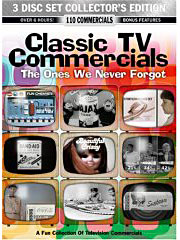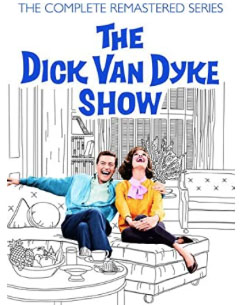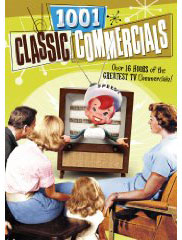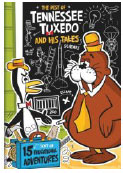|
by Billy Ingram
INTRODUCTION: She was bred to be an entertainer; like Tarzan raised by the Great Apes, hers was an almost impossibly insular existence. Frances Gumm, rechristened Judy Garland, was a wholly manufactured product of a stage mother that pushed her relentlessly and a movie studio that programmed her, sheltered her from reality, then coldly spat her out into a world she knew little about. Who do you know that was put to work at age two? Little Frances Gumm was, touring backwater hick towns as part of a two bit vaudeville act, the Gumm Sisters. "Nobody asked me," she recalled of her first time on stage. "I was too little when I went into Vaudeville. I was two years old and I just knew 'Jingle Bells' and my grandmother threw me on to my father's stage - he owned the theater in Grand Rapids, Minnesota - and I just sang 'Jingle Bells' and nobody told me to stop." Coming from a childhood that was, in her words, "no good to begin with, no fun" and, "something out of Tess of the Stone Country," 13-year old Judy signed with Metro Goldwyn Mayer in 1935; she inked a deal with Decca Records a year later to pump out 78 rpm singles. She arrived at MGM addicted to speed supplied by her overbearing mother so the studio doctors took over, chemically winding the kid up in the mornings and spinning her down each evening. After all, she was expected to be impossibly perky when the director yelled "Action" every morning, working 6 or 7 days a week with rarely a week off. Today we'd call it child abuse, or extreme mental and physical cruelty. Judy never attended school, at least none that we would recognize; she was tutored by a studio provided teacher between shots on the set only because it was required by state law. That was the price Judy Garland paid to do what she loved - what she did best - pleasing people. THE GREATEST STAR It's hard in modern day terms to conceptualize what a huge star Judy Garland was. For two decades she was a top-ten box office draw, the rare child that graduated from kiddie fare to adult stardom. She had 'graduated from high school' but never written a check. She'd never purchased a train ticket. She knew little about the daily transactions that people took for granted. Judy merely turned to her right or left at any time during the workday and there was someone ready to tell her what she was required to do next. Time was too valuable on a movie set to have the star waiting in line at the DMV, attending high school, depositing her paycheck or doing life's simple tasks. From the beginning MGM carefully crafted Judy's public persona with made up stories and contrived photo ops. Keeping a star's image intact was 'job one' at this factory so every public appearance was carefully controlled, exquisitely micro-managed. Before long hospital stays had to be arranged to dry out MGM's biggest star, but doctor's advice was systematically ignored by the studio to get their cash machine back on the soundstage and in some kind of working condition. So it was when Garland was dropped by MGM in 1950, shortly after her 28th birthday, because she could no longer keep up with the studios demands on her life and talent. Being a movie star was all Judy Garland knew. Suddenly Garland was on her own and no one in the motion picture profession would hire her in spite the fact that her last picture had made more money than ever thanks to a smear campaign waged by her former employer. Following the firing, Judy attempted suicide and the press piled on, portraying her as an ungrateful bitch - after all, who wouldn't want to live the privileged life of a 'pampered' movie star? What was her problem, anyway? THE GREATEST COMEBACK STORY OF ALL TIME
What she did next was the gutsiest move possible - she mounted a one woman act for the London stage written and arranged by Roger Edens and Oscar Levant, two of Hollywood's most gifted writer / musicians. Judy previewed a portion of the act in a pre-taped performance for CBS's Red Cross Fund Program hosted by Ed Sullivan on February 27, 1951, her first foray into television. When a terrified Judy Garland hit the London Palladium stage on April 9, 1951 it registered as one of the greatest show business comeback stories of all time. The Evening Standard wrote, "In fact, she is an artist. We saw a brave woman on Monday, but more than that, we saw a woman who has emerged from the shadows and finds that the public likes her as she is, even more than what she was." Concert audiences didn't just applaud for Judy they screamed, stamped their feet and yelled until they were hoarse. They cried out for encore after encore and Judy delivered like no one before or since. Rivaled only by, it is said, Al Jolson - only Jolson was a 'you had to be there' kind of thing, no live recordings exist of any of his concerts. There's very little surviving film footage and most of that is relatively unimpressive.
Soon Garland
was earning many times her former MGM salary and she was living life on
her own terms.
|
Amazon Prime - unlimited streaming PR4 & PR5 Pages for Advertising
|
|
TVparty! is TM and copyright 1995-2024 by Billy Ingram |
 |
 |
 |
 |
 |
TV
Shows on DVD/ / / /
/ / / TV Show Reviews / /
/ / / / / Movies on Blu Ray/ / / / / / / Holiday
Specials on DVD / /
/ / / / Classic
Commercials |